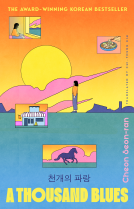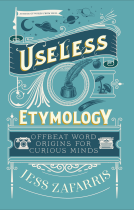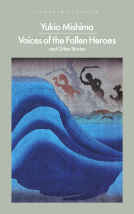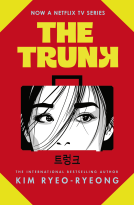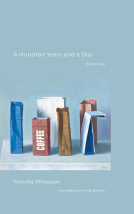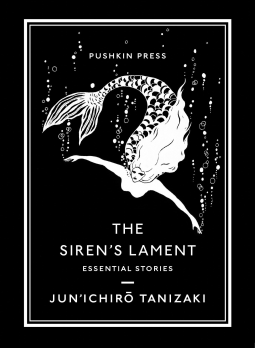
The Siren’s Lament
Essential Stories
by Jun'Inchiro Tanizaki
This title was previously available on NetGalley and is now archived.
Send NetGalley books directly to your Kindle or Kindle app
1
To read on a Kindle or Kindle app, please add kindle@netgalley.com as an approved email address to receive files in your Amazon account. Click here for step-by-step instructions.
2
Also find your Kindle email address within your Amazon account, and enter it here.
Pub Date 26 Sep 2023 | Archive Date 17 Sep 2023
Talking about this book? Use #TheSirensLament #NetGalley. More hashtag tips!
Description
Featuring “The Qilin,” “The Siren’s Lament,” and the novella Killing O-Tsuya, this gorgeous new edition of 3 classic works translated by Bryan Karetnyk distills the essence of Jun'ichirō Tanizaki's shorter fiction: the co-mingling of Japanese and Chinese mythologies, the chillingly dark side of desire, and the paper-thin line between the sublime and the depraved.
- “The Qilin”: The sage Confucius travels to a kingdom ruled by a struggling duke, whose pursuit of virtue is threatened by his consort's obsession desire for pleasure.
- Killing O-Tsuya: A naïve servant elopes with his master's daughter, only to be plunged headlong into a world of murder and corruption.
- “The Siren’s Lament”: Exhausted by a lifestyle of never-ending debauchery, a young prince finds himself in possession of a dazzling, beguiling mermaid.
The essential short works of one of the most important and widely-read figured in modern Japanese literature, author of hugely popular works including In Praise of Shadows, The Makioka Sisters, and Naomi; renowned for his investigations of family dynamics, eroticism, and cultural identity.
Available Editions
| EDITION | Other Format |
| ISBN | 9781782278092 |
| PRICE | US$18.00 (USD) |
| PAGES | 224 |
Available on NetGalley
Featured Reviews
The Siren's Lament was an enjoyable collection of three short stories by Tanizaki Jun'ichirō. All three tales had something interesting to offer, but I think my favourite was "Killing O-Tsuya. It was the longest of the three and I felt that gave me time to really get involved with the characters and their situations. This is the second trio of short stories I've read by this author and I am certainly keen now to go on to read some of his longer works. Recommended if you like early 20th century Japanese fiction. I am giving this book 4.5 stars.
The Siren’s Lament is a collection that contains two short stories and one novella in the middle by the classic Japanese author Jun'ichirō Tanizaki. This was a great introduction to the fiction of Tanizaki (I’ve always wanted to read his novels, especially The Makioka Sisters), it is also a brand new translation by Bryan Karetnyk. The last short story is the title one, which is very fitting as all three stories in a way deal with the theme of women as temptresses, desire vs. morals, or reason. The most impactful and memorable text is the novella Killing O-Tsuya which tells a story of an elopement gone wrong. Some of the elements made me think of Macbeth (especially Lady Macbeth). I didn’t fully love the very ending of this story but still, it was a really captivating, somewhat theatrical, read. I breezed through these stories and would recommend them to anyone interested in less known classics. It definitely made me want to read more of Tanizaki’s works.
Thank you to Netgalley and Pushkin Press for the e-arc. The book comes out in September 2023 :)
 Jessica P, Reviewer
Jessica P, Reviewer
I always longed to read Tanizaki's works and when I came across this book, I immediately interested. And after learning that this book contained his early works, I feel like I'm in good path. I'm not familiar with his writings yet, but I found myself enjoying all the stories in this book.
This book contains three short stories, written by Tanizaki in early years of his carreer. I liked all of them, but I think my most favorite will be The Qilin. Although I'm not familiar with Confucius or Chinese philosophy and history, I enjoyed the story quite much and it left me with some sort of feelings after reading that. I liked the sensation I was feeling after I finished reading the story. I also liked the second story. Killing O-Tsuya. I liked how the story turned from what I thought as forbidden love story drama with high possibilities of a happily-ever-after kind of ending into something brutal and tragic. I liked how things slowly leaning to the corrupted way step by step as I was advancing toward the ending. I enjoyed reading the third story, The Siren's Lament, but I found the ending to be quite unclear for me. But I found the story to be some sort of cooling down after all the euphoria of the second story.
I enjoyed reading Tanizaki's writings and I can't wait to read some more of his work. I think I would enjoy them as well.
Thank you for NetGalley and Pushkin Press for the e-ARC in exchange for honest review.
 Reviewer 1206626
Reviewer 1206626
Great insight into Japanese and Chinese mythology. I’ll be on the lookout for more of Jun'ichirō Tanizaki’s writings.
Since I’m unfamiliar with the stories in these collections, I’m not qualified to comment on the accuracy of Bryan Karetnyk’s translation. The writing is smooth, and seems to lack artistic liberty however, which I highly respect and enjoyed.
Out of the three stories, I enjoyed “Killing O-Tsuya” most—it’s length allowed for deep exploration into the characters and their growth. “The Qilin” and “The Siren’s Lament” were excellent as well.
Thank you to NetGalley and Pushkin Press for the eARC. All thoughts were my own.
 Dmitry P, Reviewer
Dmitry P, Reviewer
This is a collection of three of Tanizaki's stories. The thematic link seems to be the enchanting (and corrupting?) powers women have over men. In the first story, we see Confucius try and fail to show a ruler that his blind devotion to his cruel wife is bringing ruin to his kingdom. In the second story, which is perhaps among the best I read by the author, a young apprentice falls in love with the daughter of his master, and goes on a journey that corrupts his soul and being to the core. In the third and final story, a mermaid enchants a disillusioned Chinese ruler, who leaves everything only to help her achieve her dream.
As ever, the author's writing is superb. It in itself is enchanting and indeed somewhat erotic in its style. Having read a lot of his work, these stories do not fall short. The characters are vivid and colourful, the writing is crisp and engaging, and the stories are interesting.
I also liked the editor's choice of putting these three stories together - they are indeed linked and it makes sense to read them together.
I did find myself struggling with think, though, the most. The moralising felt a bit heavy handed, a bit like in Tolstoy's Family Happiness, and perhaps didn't age well. Oh well.
 Stephen B, Librarian
Stephen B, Librarian
My thanks to NetGalley and Pushkin Press for an e-ARC of this title, to be released September 26, 2023.
Made up of 2 short stories and a novella, it appears none of these earlier Tanizaki pieces had been translated before. Translator Bryan Karetnyk provides the reader with a nice, short introduction - but this is one volume of fiction that could have been improved by including Footnotes to the text.
The first and last short stories have Chinese/Japanese historical and mythological settings.
But the real stand out here is the novella, "The Killing of O-Tsuya". Written in the early 20th C, it can stand with anything James M. Cain or the early Dashiell Hammett has written! Made into a movie twice in Japan (1934 and 1951 - both seem to be impossible to view anywhere), I could easily see this remade once more by Tarrantino or the Coen Brothers (Pushkin Press - you should send them copies of this book!). The ending is a bit abrupt - I wish he had developed the coming end of Otsuya a bit more.
Reading some of the comments on Goodreads, I think that having some experience, and understanding, of Japanese literature, if not with Tanizaki in particular, helps in appreciating this volume.
My thanks to Pushkin and Bryan Karetnyk for translating and publishing this short, outstanding, collection.
4.5 out of 5.
 Lola J, Reviewer
Lola J, Reviewer
This was an interesting collection of three short stories. There is a common theme of wanting what you cannot have, or maybe desiring the unobtainable is a better phrase to use. Two of them are fantastical, the other not so much.
In these short stories Tanizaki’s writing shines through and that is exactly the highlight of these stories. The writing almost made the subject and the quality of the narrative not matter. Though the three stories were interesting enough, it was definitely the writing itself, the way the author expresses himself, that made me enjoy them as much as I did.
The longest story was the darkest and the most grounded in real life. The other two kind of read like fables or morality tales. I thought each of them very interesting to read.
What these stories did was simply wet my appetite to read more from this author.
A fantastic collection of short stories from a Japanese master of the form. When I first read Tanizaki, I felt a deep disappointment when the lack of translation of his work left me hungering for more. With the publication of this volume, I can only hope a new generation of readers can have their minds opened to a master of the craft.
 Alan M, Bookseller
Alan M, Bookseller
A collection from one of the most important figures in 2oth century Japanese literature, exploring what are some of Tanizaki's more important themes of Japanese connections to older myths shared with China, and the dark nature of desire. And available in English for the first time.
A great collection to have on your shelf and dip into, and probably a must-have for any Japanophile. 4 stars.
(With thanks to the publisher and NetGalley for an ARC of this title.)
Translated from Japanese, the dark and glittering tales in this book will entrall readers. Will definitely be ordering for my library.
"The Siren's Lament" by Jun'Inchiro Tanizaki, a newly translated collection featuring two short stories and a novella, offers an intriguing glimpse into the intertwining of Japanese and Chinese mythologies, dark desires, and the fine line between the sublime and the depraved. The standout story for me was the novella, "The Siren's Lament," where a young prince, weary of constant debauchery, encounters a mesmerizing mermaid. This tale, along with "The Qilin" and "Killing O-Tsuya," showcases Tanizaki's exploration of cultural identity, family dynamics, and eroticism.
Each story in the collection has its unique allure, but it's "The Siren's Lament" that resonates the most. Its blend of mythological elements with human emotions creates a narrative that is both enchanting and thought-provoking. The translation by Bryan Karetnyk is seamless, maintaining the essence of Tanizaki's style, which is known for its rich, descriptive language and deep psychological insights.
Despite the novella being the highlight, the other stories are not to be overlooked. "The Qilin" offers a poignant look at the conflict between virtue and pleasure, while "Killing O-Tsuya" delves into a world of murder and corruption following a seemingly innocent elopement. Each story, through its unique lens, contributes to the thematic exploration of desire versus morality, making the collection a cohesive and compelling read.
Tanizaki's ability to create vivid, complex characters and his masterful storytelling are evident throughout the book. The tales, while rooted in mythology, have a timeless quality, making them relevant to contemporary readers. The exploration of themes such as temptation, the corrupting influence of desire, and the moral dilemmas faced by the characters are particularly engaging.
Overall, "The Siren's Lament" wass a 4-star read for me. It's a collection that not only offers an insightful look into Japanese literature but also invites readers to ponder the deeper aspects of human nature. For anyone interested in classic Japanese fiction (me!!) or looking for a literary journey that combines the mythical with the moral, this collection is a must-read.
This collection by Jun'Inchiro Tanizaki is a hauntingly poetic exploration of desire, obsession, and the allure of the unknown. Tanizaki’s lush prose blurs the lines between reality and myth. Though brief, the stories linger with an unsettling beauty, capturing the fragility of human emotions. << I made my review sound much better with the help of chatGPT. But yeah, if you like fables fairytale writing, you might like this.
Readers who liked this book also liked:
Tomoka Shibasaki
General Fiction (Adult), Literary Fiction, Novellas & Short Stories
